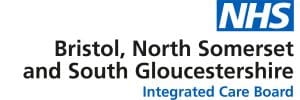ICS awarded funding to address inequalities in mental health research
The Bristol, North Somerset and South Gloucestershire Integrated Care Board (ICB) diverse Research Engagement Network (REN) has been awarded £76,000 by NHS England to help make local mental health research more representative.
The Bristol, North Somerset and South Gloucestershire ICB diverse Research Engagement Network was set up in 2023 to improve the inclusion of under-served, racially-minoritised communities in health and care research.
Based on its award-winning Health Ambassadors model, the new funding will help the network to build trusted relationships with the region’s Black African and Caribbean heritage communities. Working with communities in this way will help unlock a greater understanding of stigma, barriers and service issues around mental health.
Research by the NHS Race and Health Observatory found that some of the largest inequalities in health care relate to mental health, particularly for Black communities. This national pattern is reflected in Bristol, North Somerset and South Gloucestershire with inequalities in access, outcomes and need.
For example, in mental health settings, minority ethnic groups experience inequalities in access to psychological therapies and cognitive behavioural therapy and higher rates of compulsory admission to psychiatric wards.
The project will work with the Avon and Wiltshire Mental Health Partnership (AWP) and Mental Health and Wellbeing Integrated Network Teams (MINTs) across secondary and primary care, and within the voluntary sector and non-NHS settings, such as prisons and schools, to ensure greater and more meaningful participation from these communities in mental health research.
Asha Mohamed, Director at Caafi Health, the project’s Lead Delivery Partner, said:
“We all have mental health. Therefore, it is important that everyone can get help if they need it in a way that will benefit them, from services that understand their needs and ambitions. But we can only do this if the people taking part in mental health research reflect the people who are most disproportionately affected.
“We can now reach further across our local communities to gain a better understanding of their priorities and needs from mental health research happening locally. Securing this funding is a tremendous achievement for all those who were involved.”
Organisations also involved in the project include Bristol, North Somerset and South Gloucestershire Integrated Care Board (ICB), Avon and Wiltshire Mental Health Partnership NHS Trust (AWP), the National Institute of Health and Care Research (NIHR) Clinical Research Network West of England, NIHR Applied Research Collaboration West, People in Health West of England, Bristol Health Partners Academic Health Science Centre and Nilaari Agency.
Paul Roy, Associate Director for Research at the Bristol, North Somerset and South Gloucestershire ICB, said:
“We were one of only a handful of regions across England to secure this highly competitive funding, so this is a great endorsement of the community-led partnerships that have developed through the Research Engagement Network, and testament to the work of the lead partner, Caafi Health. This is a great example of how the different parts of our Integrated Care System can work together and support community sector partners to secure funding aimed at improving outcomes for our communities.
“This award will help us deliver more inclusive health and care research that will ultimately lead to improved services for all.”
Dr Julian Walker, Research & Development Director at AWP, said:
“We are aware that some local communities are excluded from services and even more so from research; we recognise these inequities and the negative consequences for peoples’ health – both mental and physical.
“We have started work to address this in our AWP R&D Department but the additional expertise, challenge and support we will gain from the new mental health ambassadors will dramatically improve and hasten this work. All NIHR funding is competitive, so this is a great achievement and we have done it together based on the foundation built by the REN and led by our community partners.”

